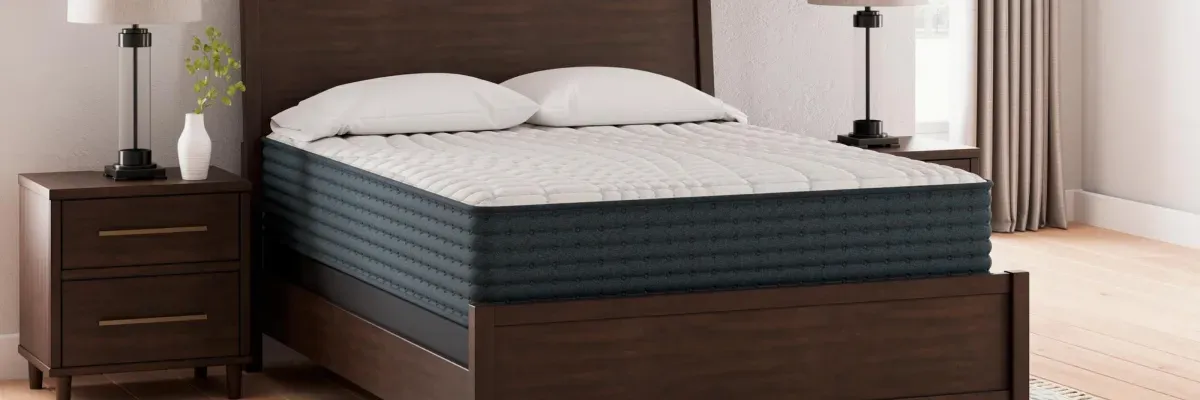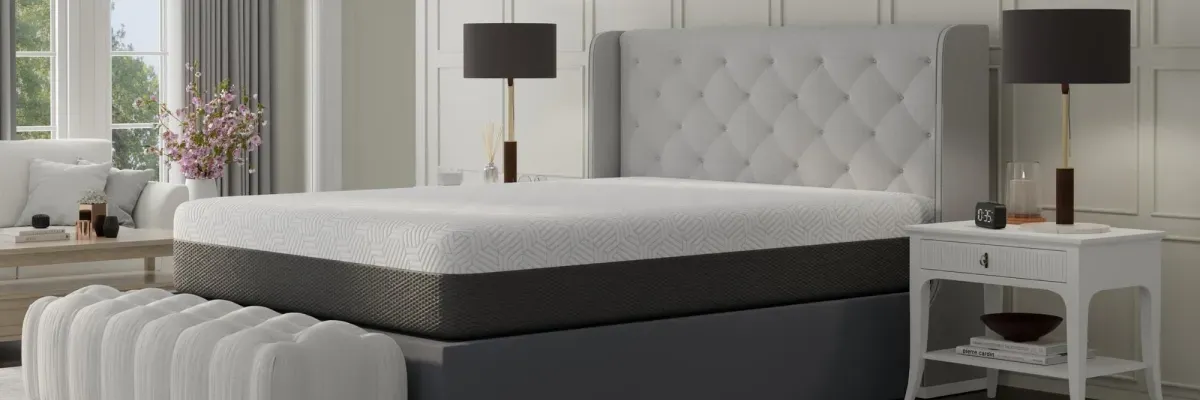What Type Of Mattress Is Best For Back Pain?
Fri May 23 2025
Back pain is a common struggle that affects millions of people and can seriously impact your sleep, mobility, and overall quality of life. One of the most overlooked contributors? Your mattress.
Choosing the right mattress can help alleviate pressure points, keep your spine aligned, and support healing, especially if you experience lower back or upper back pain. But with so many options, where do you start?
Let’s break down which mattress types, firmness levels, and features are best for easing back pain based on your needs and sleep style.

Best Mattress for Lower Back Pain vs. Upper Back Pain
If you have lower back pain, focus on a mattress that supports your lumbar region. This is often a medium hybrid with a balance of pushback and contouring. This helps relieve tension in the lower spine and hips.
Pressure-relieving comfort layers, especially around the shoulders, often benefit upper back pain. Look for a mattress with zoned support or a memory foam layer that cushions the upper spine while maintaining alignment.
The right mattress should actively reduce stress on your pressure points and keep your spine aligned through the night.

Understanding Your Sleep Style
Your preferred sleep position plays a major role in what type of mattress best supports your back.
-
Back sleepers need medium-firm to firm support to keep the spine aligned and prevent sagging.
-
Side sleepers benefit from softer comfort layers that cushion the shoulders and hips.
-
Stomach sleepers typically need a firmer surface to prevent the spine from arching unnaturally.
If you’re a combination sleeper who changes positions throughout the night, consider a responsive hybrid mattress that adapts as you move.

Which Mattress Type Is Best for Back Pain?
Let’s break down the most popular types of mattresses and how they stack up for back pain relief:
Hybrid Mattresses
Hybrid mattresses are the best overall choice for back pain. They combine supportive innerspring coils with contouring foam or latex layers, offering both stability and comfort. They are ideal for all sleep styles.
Memory Foam Mattresses
Memory foam mattresses are known for pressure relief and body contouring. Choose medium-density foam to prevent excessive sinkage that can misalign the spine.
Innerspring Mattresses
Innerspring mattresses are traditional and affordable, but not all offer the contouring needed for back pain. Choose models with zoned coils or pillow tops to improve support.
Mattresses to Avoid for Back Pain
-
Super soft/plush models with no support layers
-
Low-density memory foam that allows excessive sinking
-
Old or sagging mattresses (typically over 7-8 years old)

What Firmness Level Is Best for Back Pain?
There’s no one-size-fits-all answer, but most people with back pain find relief with a medium mattress. It offers enough support to maintain spine alignment while still cushioning your pressure points.
Here’s a quick breakdown by sleeping style:

Your body weight also matters. Heavier individuals tend to need a firmer mattress to prevent sinkage, while lighter individuals may prefer a softer feel.
Tips for Finding the Right Mattress For Back Pain
-
Look for zoned support: Some mattresses offer firmer support in the lumbar area and softer foam around the shoulders.
-
Try before you buy: Test mattresses in-store using our bedMATCH system or look for sleep trials if buying online.
-
Check return policies: Give yourself time to adjust and ensure your mattress is helping, not hurting.
Upgrade Your Sleep with Mattress Direct
At Mattress Direct, we know that sleep isn’t just about rest; it’s about recovery. We offer a wide selection of supportive, high-quality mattresses designed to address back pain and promote spinal health.
Shop trusted brands like Tempur-Pedic, Sealy, Serta, and more online or in-store across Louisiana and Mississippi. Contact us or visit your local Mattress Direct showroom today. Our sleep experts are here to help you find the best mattress for lower back pain, upper back pain, and everything in between, including pillows, bedding essentials, and adjustable bases.
Related readings from our blog:
FAQs: Common Questions About Mattresses for Back Pain
Is a soft or firm mattress better for back pain?
Generally, a medium mattress is best. Too soft, and you may sink in too much; too firm, and it might not cushion pressure points.
What firmness of mattress is best for joint pain?
A medium to soft mattress often works best, especially for side sleepers, as it cushions the joints without losing support.
Which mattress is best for back pain: foam or spring?
Foam offers great pressure relief, while springs offer better support. A hybrid mattress offers the best of both worlds.
Which mattress is good for neck and shoulder pain?
Look for a mattress with contouring foam or zoned pressure relief. These are especially helpful for side sleepers who put more pressure on their shoulders.
